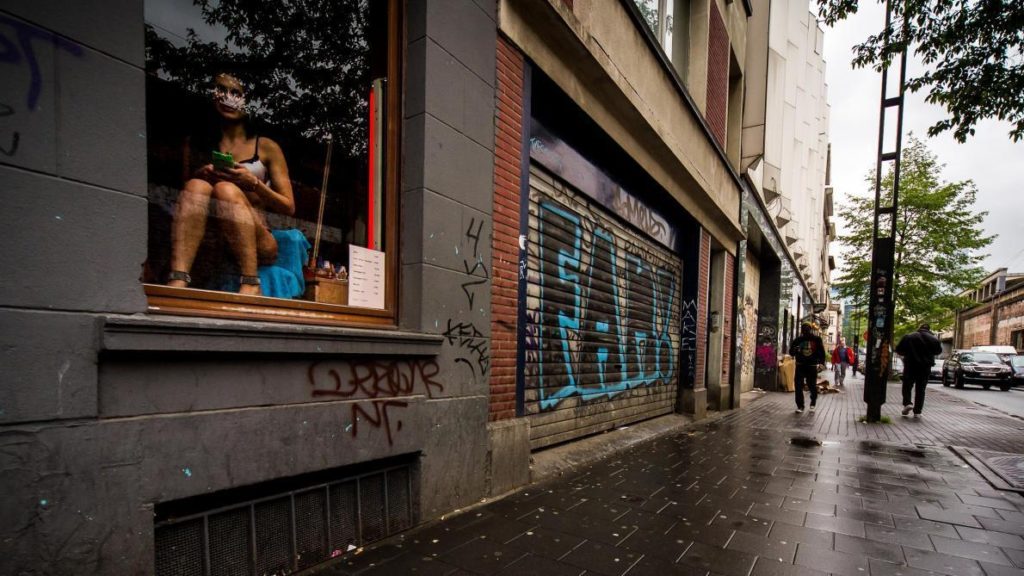The march of the seven prostitution survivors arrived in Brussels on Saturday. The march arrived at place du Béguinage in Brussels at 18:50. The protestors want prostitution to be recognised as violence and an obstacle to equality between men and women.
The protestors left Liège on the 6th of April. They also travelled through Huy, Ardenne, Namur, Sambreville, Charleroi and la Louvière before getting to Brussels. They have been meeting between members of various associations during this operation.
The march was started by 62-year-old Rosen Hicher, who was a prostitute in France for 22 years. Hicher has already organised three marches. “I was shocked by the shop windows”, Hicher said when asked about the situation in Belgium. "How can we sell women in shop windows like livestock in the 21st century? How can we leave them there, to face general indifference and be at the mercy of violence from clients? We have to ban prostitution and do more to combat pimping. We have to protect women, as nearly all those involved in prostitution are under the influence of extremely violent men who act as their pimps”.
UTSOPI (the union of organised sex workers for independence) thinks prostitution survivors are picking the wrong fight by saying that prostitution is practised clandestinely in countries where is it illegal. This damages prostitute’s rights and safety. “When you are in the middle of it, you can’t let yourself think it is extreme violence”, says Hicher. “All you can think is that you are ok with it, even if it’s false. When you get out of it, you see it. It’s not easy, it takes time to understand”.
Pierrette Pape, the president of the ISLA association, marched alongside the survivors. She explained that this march aims to stop prostitution from being made banal. “We tend to hear about things that reinforce the status quo and the violence that causes. The sex industry only exists because of money. The market is fed by trafficking, which is based on an enormous amount of tolerance and inequality. It’s a business that ruins women’s bodies. A majority of prostitutes are female and their clients tend to be male. The large majority of prostitutes we meet are foreign women from minority communities, so they are already vulnerable in their own countries. They end up in prostitution here”.
The Brussels Times

